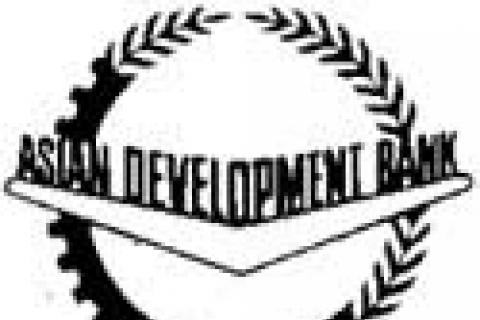Vietnam's karst landscapes are world renowned. Perhaps the country's most famous limestone scenery is at Ha Long Bay, which has been declared a World Heritage Site. In 1962, the karst landscape at Cuc Phuong in northern Vietnam became the country's first national park.
As well as producing spectacular scenery, limestone is the main raw material for cement manufacture and many karst landscapes are under threat. Vietnam is no exception.
Other information
The sun sets on the Siria Valley; the temperature is over 38 degrees centigrade. It was always hot here, it is a valley, but never before had the heat reached the levels it does nowadays. The rivers and streams are only a memory, now they look like tracks, deserted and dusty because of deforestation and the extraction of thousands of metres of sand.
The struggle of the people of the town of Esquel, in the Argentine Patagonia, against the intentions of the Canadian mining company, Meridian Gold Inc. to exploit a gold mine in Cerro 21, have been going on for over seven months now. Ranging from mobilizations to "escraches" (mass demonstrations outside the homes of those responsible for the mine), from a plebiscite and legal action to the symbolic closing down of the access to the camp, from the graffitti and murals to the parliaments of the Mapuche People and the "No! Forum".
Presently, the Chilean Patagonia is threatened by a mega-project to be carried out by the Canadian transnational company Noranda Inc., a long-standing mining company that proposes to build one of the largest aluminium reducing plants in the world in the pristine region of Aysen.
To give an idea of the dimensions of the damage that the construction of this aluminium plant (known as "Alumysa") will cause, the zone where it is to be installed together with the related works, need to be described.
During the late seventies Carbocol, a State coal company, revealed the existence of major coal deposits in the Guajira peninsula. The deposits were located in the territory traditionally inhabited by the Wayuu community, an indigenous nomadic people that moved along the region bordering with Venezuela. Following a long controversy on the advisability or not of exploiting this fossil fuel, the State finally gave its authorization to this company under the argument of regional development of energy.
Misima Island is situated in the Louisiade Archipelago in Milne Bay Province, Papua New Guinea. The island is 40 kilometres long and 10 kilometres wide at its broadest point, and is covered in lowland hill rain forest except for the coastal zone and the foothills which have been cleared for cultivation and replaced by woodland.
An expanding international coalition of public interest, human rights, labor and environmental groups has vowed to resist mining in Ghana's forest reserves.
At a press conference on Thursday 8 of May, to launch a campaign against mining in the reserves, the coalition expressed outrage at the decision of the Ghana government to open up some of the reserves for surface mining. Coalition members called on the government to rescind its decision and withdraw licenses it has already given to some of the mining companies to mine in the forest reserves.
Briefing Paper prepared by Lee Tan, Australian Conservation Foundation/Friends of the Earth Australia
“We, the landowners are developing and will continue to develop OUR LAND on our own term. We therefore sternly warn all those parties involved in wanting to use OUR LAND for oil palm to STAY OUT! Any attempt to bring oil palm on our land will be strongly resisted”
Extract from a newspaper advertisement put out by a group of landowners in PNG, February 2003
Oil Palm in PNG
Every time the Asian Development Bank lends money on a project it creates a problem for the government receiving the loan. The project must make money in order that the government can pay the Bank back. This sounds like straightforward economics, but when the Bank gives loans for forestry projects, this means that the forests must make a profit. The simplest way of converting forests to profits is to cut down the trees. The social and environmental impacts of doing this are often devastating.
In February, the World Bank approved a new Water Resources Sector Strategy (WRSS). The strategy says the Bank needs to shrug off its critics and boost spending on big dams and other water megaprojects.
This strategy is a reactionary, dishonest and cynical document. If put into effect it will provide rich pickings for the big dam lobby and private water companies, but only worsen poverty, water shortages and the dire condition of the world's rivers.
Have you ever seen "Ghost Busters", the movie? Thanks to the magic of movies, that silly story, perhaps the brainchild of a superstitious youngster became a motion picture. Many kids and a few adults maybe even believed for a moment that ghosts are for real. This is pretty close to what happened in New Zealand, at the "Experts Meeting on Planted Forests".
To many of us, this is just absurd, planted forests do not exist. But, is that a reason for not being scared?
- Well, I don't know what I saw, but I was scared!
The imagination of technocrats seems to have no limits. On the other hand, their common sense appears to be extremely and increasingly impaired. Their bright ideas surprise us --backward people-- constantly and at times we even doubt --unscientifically-- about their mental sanity.
Such is the case of a Dr Klaus Lackner, a Columbia University physicist, who has invented an artificial tree which according to him is much better than the obviously limited real one.

